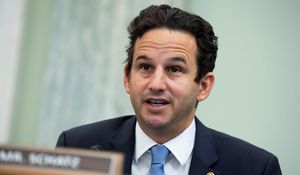Mexican President Claudia Sheinbaum announced on Monday after discussions with U.S. President Donald Trump, the planned tariffs against Mexico are on hold for one month. This decision is framed within the broader scope of U.S.-Mexico relations, particularly the commitment to halt drug trafficking, primarily fentanyl, from Mexico to the United States.
“Mexico will reinforce the northern border with 10,000 members of the National Guard immediately, to stop drug trafficking from Mexico to the United States,” Sheinbaum posted on X. “The United States commits to work to stop the trafficking of high-powered weapons to Mexico.” This proactive step appears to have contributed to Trump’s postponement of the tariffs originally slated for enactment.
The uncertainty of these tariffs adds complexity to the already tense U.S.-Canada relationship, as Canada is also affected. The tariffs, which were initially set to take effect on Tuesday, still loom over the discussions between the nations. Trump confirmed via social media his intentions to converse with Canadian Prime Minister Justin Trudeau about the tariffs.
He expressed dissatisfaction with Canada’s cooperation levels, citing historical partnerships dating back to World War II and referencing drug-related issues. Trump reiterated, “Canada doesn’t even allow U.S. Banks to open or do business there. What’s all about?” His comments signal frustration with the perceived trade imbalances and security challenges posed by neighboring countries.
The imposition of tariffs would significantly impact trade relations, with Mexico facing tariffs up to 25% and Canada similarly affected. Meanwhile, China could see tariffs of 10%, especially due to its reported involvement with fentanyl sales. These measures have raised eyebrows and concerns among financial markets, businesses, and consumers, who are bracing for potentially higher prices as import taxes may lead to inflationary pressures.
Despite the apparent shift toward diplomacy with the month-long hold on tariffs, anxiety remains among economic analysts. Stock market indices were already experiencing modest sell-offs as investors anticipated the negative repercussions. Kevin Hassett, the director of the White House National Economic Council, remarked it was misleading to frame the situation solely as a trade war. He stressed, “Read the executive order where President Trump was absolutely, 100% clear; this is not a trade war. This is a drug war.”
Nevertheless, the measures on tariffs have underlined Trump’s satisfaction with tariffs as not only diplomatic tools but also strategies to reshape existing trade agreements. While Hassett delineates the rationale behind these tariffs, numerous economists outside the administration continue to express skepticism about their long-term efficacy and outline potential consequences.
Joe Brusuelas, chief economist at RSM, recognized the urgent need for resolution, stating, “If there is no resolution, the impact on the U.S. economy will be significant.” With predictions of slowed growth and increased borrowing costs looming, the economic outlook continues to be clouded. Disruptions caused by these tariffs could impede growth, pushing the costs associated with mortgages and auto loans to higher rates.
Even so, Trump’s administration has assured the public of efforts to create benchmarks and guidelines for Mexico and Canada to follow to mitigate illegal immigration and drug trafficking. Predictions of the tariffs' overall influence on inflation rates and government borrowing highlight the potential for long-standing economic repercussions if agreements aren’t reached soon.
While there’s general agreement among investors and economists about the uncertainty brought on by Trump’s tariffs on Canadian and Mexican imports, the discussion remains dynamic. The short-lived pause presents opportunities for future negotiations as key stakeholders navigate the tricky waters of trade, diplomacy, and economic stability.
Looking forward, how each country responds to this hold and any subsequent agreements reached will undoubtedly shape the economic interactions surpassing mere tariffs. The question remains whether cooperation can persist without detriment to both economic recuperation and national security.



